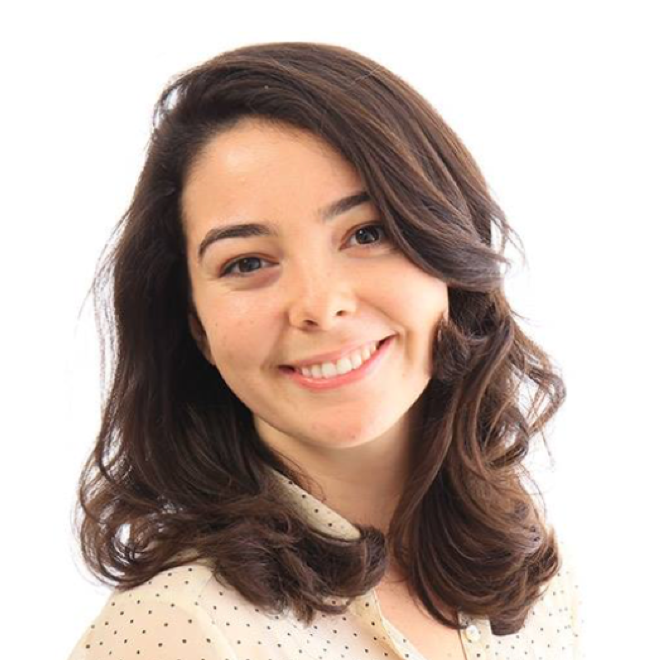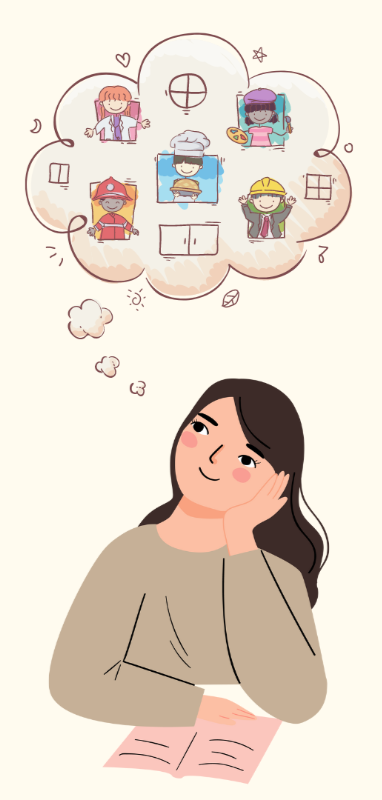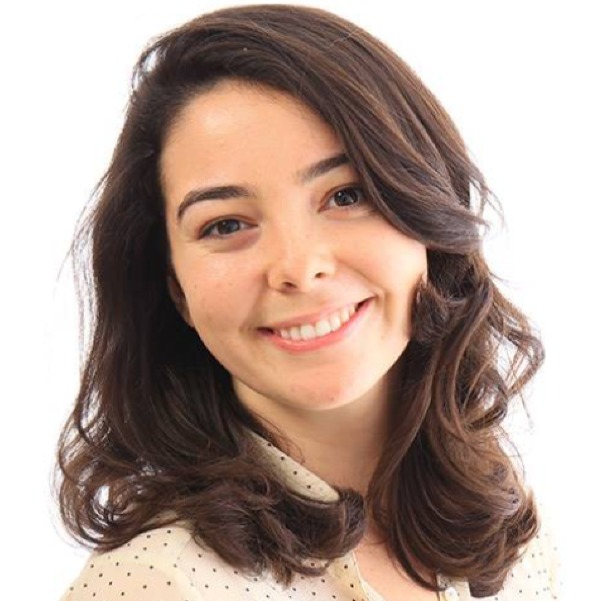HayU Blog
ADHD Awareness Month: An Interview with Maggie McCall
October 3rd, 2024
Hunja sat down with one of our educational specialists, Maggie McCall, who has diagnosed ADHD. We discussed her journey of seeking a diagnosis, embracing her neurodiversity, and leveraging her ADHD traits to thrive in her passions as an educator and writer. Here is Maggie's story in her own words.
I got my ADHD diagnosis as an adult after a few precipitating events. I had just gotten fired from my first job and was struggling in college. But it was when I was serving in the Peace Corps in rural Peru that I realized that even if I was in this unbelievably beautiful country, doing what I loved, I didn't feel like I could "stay in the moment." It dawned on me that whatever I was doing, however passionate or excited I was about it, I always seemed to be "living in my head." I also knew that it had always been difficult for me to follow along in conversations without getting distracted, and working in environments where I was required to shift tasks often and quickly was overwhelming for me.
I learned that a lot of what I was experiencing lined up with ADHD traits, so I went ahead and got an assessment, and it helped me and my family connect the dots about so much in my life, both past and current. I remember looking up some teacher narratives from elementary school, and they made so much more sense. I remember one teacher pulling my mom aside and saying that she would love to give me a notebook to write down all the places my mind would travel to while I was in class because she thought it would be a fascinating read.
While getting the diagnosis helped me understand myself more, a major part of it was how validating it was, and how it allowed me to be kinder to myself. I knew that I was highly capable at many tasks, but there were some tasks that I would consider easy that I never seemed able to do. The usual example is that to be efficient with your time with household tasks, you want to start the washing machine and then do the dishes while the machine is running - rather than doing the dishes and then starting the machine. That sort of prioritization, sequential thinking, and executive functioning was always difficult for me. And so, jobs that required a high level of this work were inherently challenging.
 I got to learn that this was part of my brain wiring, which was affirming, but I also learned how, through therapy, finding the right ADHD medication, and developing systems, I could manage quite well. As far as systems go, I use my calendar a lot, and I write everything down that I need to remember. If I take a phone call in the car, and someone tells me something important that I need to remember, I always ask them to text it to me. If someone needs to change an appointment, I will always ask them to put it in an email. Being really clear about the communication I need helps both me and the people I am working with. I now have a daily, weekly, and monthly calendar, and I am always on the lookout for new systems and to-do lists. Of course, the systems aren't perfect, but now, if I forget a deadline, birthday, or meeting, instead of being harsh on myself, I review the systems, analyzing where they broke down and how I can tweak them to serve me better in the future. When I forgot a friend's birthday, I realized that I had not toggled "repeat annually" on the date on my calendar, so that was an easy fix for next time. So now, I seek to find an external fix in my systems instead of doubting my character or thinking I am a bad friend. So, I'd certainly say that knowing about my ADHD has allowed me to be kinder to myself.
I got to learn that this was part of my brain wiring, which was affirming, but I also learned how, through therapy, finding the right ADHD medication, and developing systems, I could manage quite well. As far as systems go, I use my calendar a lot, and I write everything down that I need to remember. If I take a phone call in the car, and someone tells me something important that I need to remember, I always ask them to text it to me. If someone needs to change an appointment, I will always ask them to put it in an email. Being really clear about the communication I need helps both me and the people I am working with. I now have a daily, weekly, and monthly calendar, and I am always on the lookout for new systems and to-do lists. Of course, the systems aren't perfect, but now, if I forget a deadline, birthday, or meeting, instead of being harsh on myself, I review the systems, analyzing where they broke down and how I can tweak them to serve me better in the future. When I forgot a friend's birthday, I realized that I had not toggled "repeat annually" on the date on my calendar, so that was an easy fix for next time. So now, I seek to find an external fix in my systems instead of doubting my character or thinking I am a bad friend. So, I'd certainly say that knowing about my ADHD has allowed me to be kinder to myself.
 My personal journey with ADHD has significantly influenced my work with my executive functioning students. It has given me a unique insight into what may or may not work as motivation. I've discovered that for most students, but particularly for those with ADHD, a fear of negative consequences can be a motivator, but it often comes with many negative side effects. In my experience, there needs to be more than that. I strive to work with the students to find a spark or positive motivator for their work. My journey allows me to empathize with my students when they struggle to get started on tasks they don't enjoy. Acknowledging how hard it can be for the ADHD brain to get started on non-preferred tasks is a big part of self-awareness and growth. I find that students often appreciate it and find it validating to have someone commiserate over non-preferred tasks and are more open to finding creative ways to think about getting over the hump of task initiation.
My personal journey with ADHD has significantly influenced my work with my executive functioning students. It has given me a unique insight into what may or may not work as motivation. I've discovered that for most students, but particularly for those with ADHD, a fear of negative consequences can be a motivator, but it often comes with many negative side effects. In my experience, there needs to be more than that. I strive to work with the students to find a spark or positive motivator for their work. My journey allows me to empathize with my students when they struggle to get started on tasks they don't enjoy. Acknowledging how hard it can be for the ADHD brain to get started on non-preferred tasks is a big part of self-awareness and growth. I find that students often appreciate it and find it validating to have someone commiserate over non-preferred tasks and are more open to finding creative ways to think about getting over the hump of task initiation.
Appreciating the unique strengths that come with my neurodiversity is a key part of embracing ADHD. I tend to be very good in crisis situations because I often think of all the ramifications and consequences of specific actions. My love for creativity was a big reason I completed my aster's degree in writing. I knew that passion was key to me following through with excellence. Finding those strengths and nuances of my neurodiversity really helps me embrace my ADHD, and I have found that it really helps my clients build well-rounded self-awareness.








